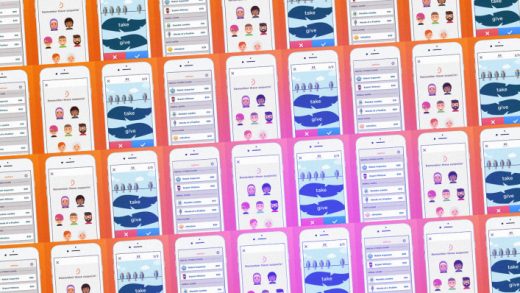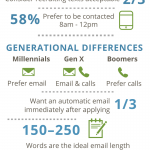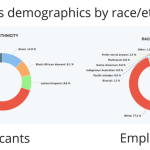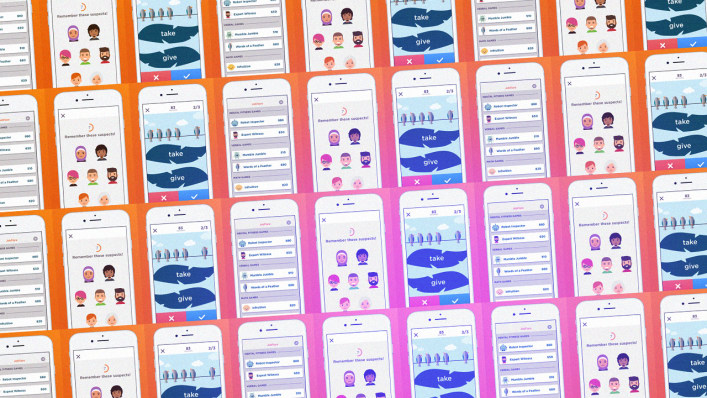Can Gamifying The Hiring Process Make It More Effective?
The next time you apply for a job, you may have to play a game on your phone.
Gamifying the hiring process is a relatively new trend in the way companies find talented candidates, but it’s gaining traction, according to Finn Hill, business analyst at GreatRok, a seed fund for early-stage startups in the recruitment industry.
Why Testing Job Candidates Is So Valuable
In a report for Talent Tech Labs, Finn asserts Talent Tech Labs director Jonathan Kestenbaum’s observation that 2017 is the year of assessments. He’s referring to the short tests that give potential employers a profile of the candidate to help them determine if they’d be a good fit for the position. There’s been little innovation in these assessments for the past decade, but that seems to be changing now. “This technique is open to an awful lot of human error and is affected heavily by inherent biases in the employer,” Finn points out.
In fact, 95% of companies admit to making bad hires each year because communication channels aren’t used effectively and employers invest resources in less efficient ways to attract talent. According to Talent Board, as many as 88% of employers are allowing more candidates to complete their applications even after they fail screening questions. While over 80% of candidates answer general screening questions during the application process, only 50% are asked for job-specific skills, and less than one-third are asked to take assessments.
But as Josh Millet, founder and CEO of Criteria Corp, is quick to point out, “Research shows that aptitude tests are consistently one of the most predictive factors of job success.” He cites a meta-analysis summarizing 85 years of research from the University of Iowa and Michigan State that finds cognitive aptitude beats out interviews, experience, and education. “The research shows cognitive aptitude to be about twice as predictive as job interviews, three times as predictive as job experience, and four times as predictive as education level,” Millet says.
Making Assessment More Fun (And Effective)
However, Finn notes that assessments can be part of a “bland phase” of a process that could stand to be more engaging.
Taking advantage of data analytics is one way to boost the predictive power of assessments, but gaming is becoming a way to capture another segment of candidates–right on their smartphones. Research from the Boston Consulting Group and Recruit Works Institute reveals that 55% of searches globally happened through internet job sites and 35% via a smartphone.
Fast Company has reported on CodeFight’s Company Bots, which pit applicants against an employer’s bot to solve coding challenges and therefore assess their skill level. Others, like Ketchum, a global marketing and public relations firm, uses an app called LaunchPad to gamify the recruiting process and then measures on creative, digital, written, and visual communications skills.
Beyond specific skills, Finn notes that companies such as Arctic Shores and Debut have jobseekers play video games within the application process to test key traits important to the employers. “Arctic Shores use games to test behaviors and form a psychometric profile of the candidate, whilst Debut test basic skills in-play to help employers pick out the strongest applicants,” Finn writes.
Millet’s Criteria Corp. just launched JobFlare, an iOS brain games app, to take the gamification one step further. Playing six games for 90 seconds is meant to test cognitive abilities, but jobseekers play even before they apply for any position. They sign up, enter their basic job interests and location, and play games like Robot Inspector and Mumble Jumble. “Verbal communication, quantitative ability, attention to detail, and other skills have long been identified as traits associated with job success,” says Millet. “JobFlare lets users demonstrate these traits through fun games, showing off their potential to employers regardless of their job experience or educational background.”
The app then takes their results and crunches them with data from their profile to generate a set of relevant job postings that are sent via email. “For the highest-performing jobseekers, our team may reach out to them directly with customized job opportunities at premium employers,” says Millet.
Millet says that while Criteria has been in the business of assessments for over a decade, JobFlare was only just released this month, so there are no successful placements yet and there are no employers within the app. Lists of job openings are generated through a partnership with job board ZipRecruiter.
Millet maintains that JobFlare’s gamification is a great motivator even before a jobseeker knows where to apply because “it will appeal to the competitive/geeky side of us.” He points out that users can see how they rank against all other users, and can also compare scores versus others in their chosen fields. “There is also practice effect for most of the games,” Millet explains, meaning scores generally improve over time, so that also creates a drive to beat one’s own score and continue to advance in the overall rankings.
Tom Schoenfelder is the senior vice president of Research and Development at another employee assessment and talent development firm, Caliper. He believes that overall, games promise to improve the candidate experience even in this “somewhat primitive” stage.
“Application right now tends to focus more on the cognitive ability constructs, but application in other constructs such as situational judgment and decision making are emerging,” Schoenfelder observes. “The big hurdle right now is that there is not a lot of validity evidence for the methodology, but that will come with time.”
UPDATED: To include an additional source attribution of Tech Talent Labs director Jonathan Kestenbaum on the “year of assessments.”
Turning a job hunt into a game can appeal to job seekers even before they know which job they’re applying for.
The next time you apply for a job, you may have to play a game on your phone.
Fast Company , Read Full Story
(53)














